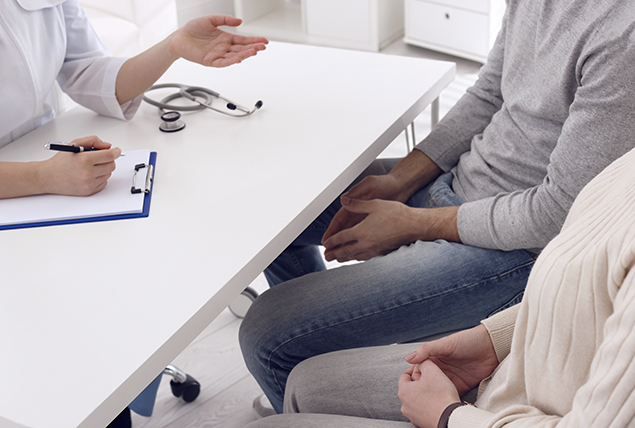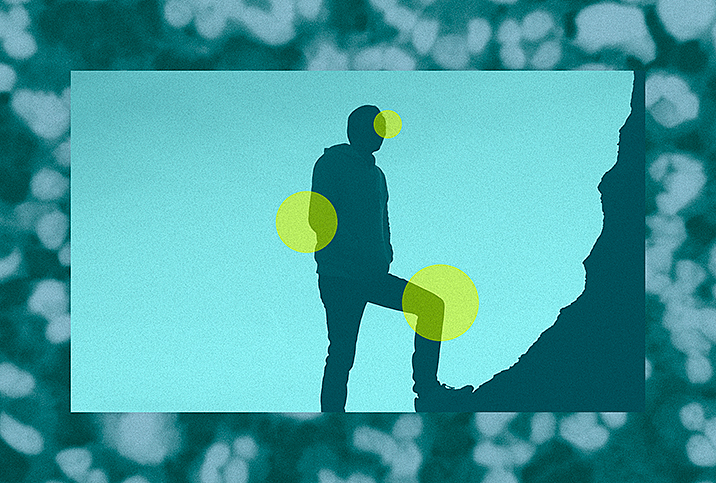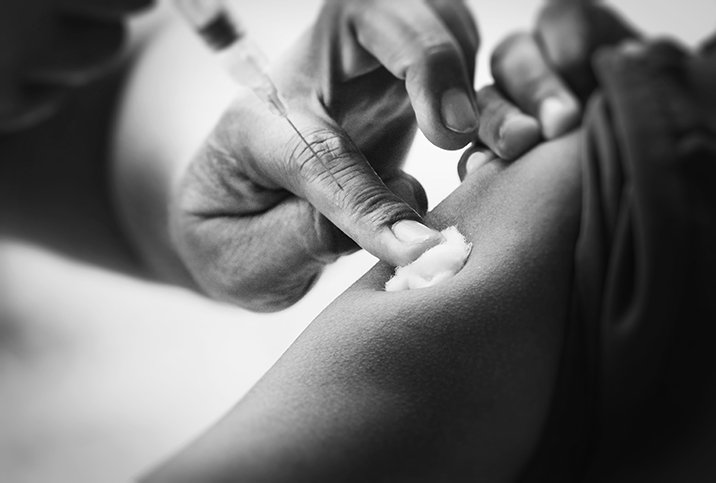If You've Been Exposed to Gonorrhea, What Do You Do Next?

Perhaps you heard your ex tested positive for a sexually transmitted disease (STD). Or maybe something doesn't feel right "down there." Most women and many men who are infected either don't have any symptoms of gonorrhea or they have symptoms so mild, they're easy to ignore.
The sooner you can get a diagnosis and begin treatment, the better the outcome. But that means not hesitating, talking to your healthcare provider and getting tested as soon as possible.
It's true that for most people, symptoms are mild or nonexistent, but the most common signs to look for are:
- Genital discharge
- Heavier periods or bleeding between periods
- Pain or burning while urinating
If you notice any symptom that could be from an STD, this online quiz at Planned Parenthood can help you decide if you should be tested.
How do you test for gonorrhea?
A urine sample is the most common way to test for gonorrhea.
"This should be done one or two hours after you last peed," said Hana Patel, M.B.B.S., a mindset coach and general practitioner specializing in sexual and women's health in London. "Waiting gives the bacteria time to build up in the urine again."
Depending on your symptoms and sexual history, your healthcare provider may also swab your:
- Cervix
- Penis
- Rectum
- Throat
Where to get STD testing
If you want to get tested for STDs, the best place to start is your local doctor's office so you can get a recommendation from someone you trust. But here are some other suggestions:
- Community health clinic
- Local lab
- Planned Parenthood
- University health clinic
- Urgent care center
You can also test for an STD in the privacy of your home. At-home testing can be a more discreet way to test for STDs, alleviating the need to travel or miss work or school for an appointment. You can buy at-home tests at your pharmacy or order them online.
Self-administered tests are simple to collect, and the results—usually available in just a few days—are highly accurate.
What happens if an infection isn't treated?
Even if you never have symptoms, untreated gonorrhea can lead to dangerous and painful—even life-threatening—long-term consequences. This is especially true for women.
Just one consequence of not treating gonorrhea is that it may increase your chance of getting or spreading HIV, the virus that causes AIDS.
Complications in women
"Gonorrhea can occasionally lead to other, more serious problems such as pelvic inflammatory disease [PID], when the infection gets into the uterus and fallopian tubes," Patel said. "This could lead to problems such as infertility and ectopic pregnancies."
"PID is a common and often underrecognized condition, especially among 15- to 24-year-olds," said Deborah Lee, M.B.Ch.B., a reproductive health specialist at Dr Fox, an online doctor and pharmacy service in the United Kingdom. "It can be a difficult condition to diagnose because up to 60 percent of cases are asymptomatic. In one study, the authors estimated that after a single episode of PID, 18 percent [of patients] would develop chronic pelvic pain, 16.7 percent would suffer from infertility and 8.5 percent would have an ectopic pregnancy."
She added that ectopic pregnancies, which occur when a fertilized egg grows outside of the uterus, are the most common cause of maternal death in the first trimester of pregnancy.
Complications in men
In males, gonorrhea causes infection and inflammation in the urethra, and if left untreated can progress to infection of the epididymis, a painful condition in the tubes attached to the testicles.
The prostate gland can also become inflamed, which can cause painful ejaculation and erectile dysfunction (ED).
How often should you get screened for gonorrhea?
"Screening" is the term for testing as a part of routine healthcare when there are no symptoms.
Women
The Centers for Disease Control and Prevention (CDC) recommends yearly screening for all sexually active women younger than the age of 25.
For women 25 and older, yearly testing is recommended if the patient has risk factors such as a new sex partner or multiple partners.
For pregnant women, the CDC recommends screening during the first prenatal visit and again during the third trimester if the risk of infection remains.
Men who have sex with men (MSM)
The CDC recommends yearly screening for all sexually active gay, bisexual and other men who have sex with men (MSM). This screening should be more frequent—every three to six months—if there are increased risk factors, such as having multiple or anonymous partners.
The CDC doesn't recommend screening for men who have sex with only women for the following reasons:
- It is harder for heterosexual men to get gonorrhea because the sex acts most commonly associated with it are the least likely ways the infection is transmitted.
- Men are more likely than women to have symptoms and, thus, seek treatment.
- The risk of complications from gonorrhea for straight men is statistically low compared with women and MSM.
Set your own testing schedule
CDC recommendations are intended for the general public, but you know your own circumstances better than anyone and, ultimately, you are responsible for your own health. If you have had unprotected sex and don't know the infectious status of your partner, get tested. If you are starting a new relationship and didn't test after the last one ended, get tested. If you have multiple sex partners, get tested.
Don't wait for symptoms to get tested; you may never get any. But having no symptoms doesn't always mean there is no infection. If you're not sure, get tested.
Your healthcare provider can help you figure out how often you should get tested based on your risk, and that includes how common gonorrhea is where you live.
With any symptoms you're unsure of, the safest option is to get tested.
Myths about gonorrhea
You should be aware of a few common misconceptions about gonorrhea:
Myth: You can wash away gonorrhea
Fact: "STDs—unlike respiratory viruses—cannot be killed by soap and water," Lee explained. "The CDC reported in a study of 3,500 young people that around 50 percent thought STDs could be prevented by douching. This is false. Passing urine after sex or washing genitals before sex will not help, either."
Myth: You can't get gonorrhea more than once
Fact: Unfortunately, you don't get immunity to gonorrhea after having had it. Anytime you are exposed to the gonorrhea bacterium, you can get gonorrhea.
Myth: Women who have sex with women can't get gonorrhea
Fact: It is possible to get gonorrhea (or any STD for that matter) as a woman who has sex only with women.
"Gonorrhea can be passed between women through shared sex toys, their hands and by rubbing vulvas together," Patel said.
Myth: Gonorrhea can go away without treatment
Fact: It can seem like a gonorrheal infection has cleared on its own with no treatment. Symptoms can come and go and eventually "disappear." But this doesn't mean the infection is gone.
When the infection is asymptomatic, you can still spread it to sexual partners. Additionally, the longer you wait to get treatment, the greater the chance of developing complications. A woman with untreated gonorrhea is likely to develop PID within a year.
Myth: You can't get gonorrhea from oral sex
Fact: Gonorrhea can be transmitted through oral sex. A person has a 63 percent chance of getting oral gonorrhea by giving oral sex to a male who has it. A male has a 9 percent chance of getting gonorrhea by receiving oral sex one time from a person who has an oral infection.


















